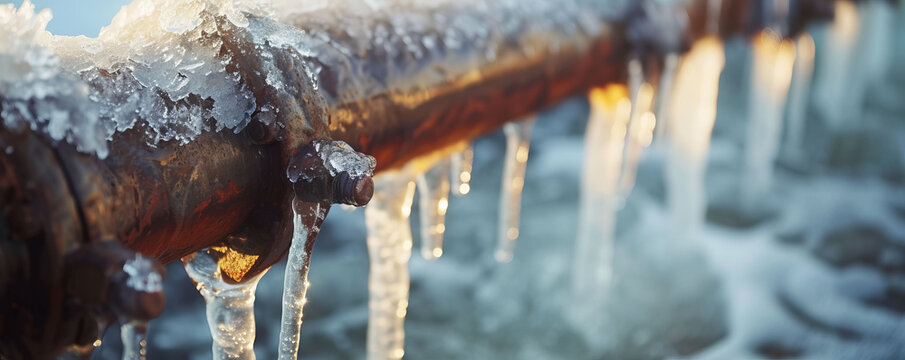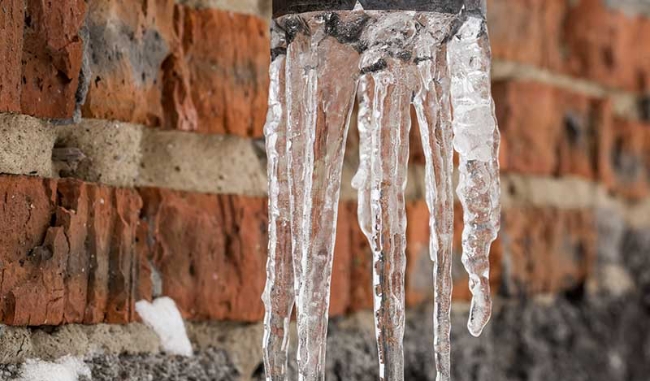Tips to Protect Your Pipes from Cold Weather Damage: Essential Guidance
Book An AppointmentJust how do you really feel when it comes to Prevent Frozen Pipes ?

Cold weather can ruin your pipes, especially by freezing pipelines. Below's exactly how to avoid it from taking place and what to do if it does.
Intro
As temperatures drop, the threat of frozen pipes rises, potentially leading to pricey repair services and water damages. Understanding just how to prevent frozen pipes is critical for house owners in cool climates.
Avoidance Tips
Shielding vulnerable pipelines
Cover pipes in insulation sleeves or utilize warmth tape to safeguard them from freezing temperature levels. Focus on pipes in unheated or external areas of the home.
Home heating methods
Maintain interior spaces effectively heated, especially areas with pipes. Open cupboard doors to permit cozy air to circulate around pipes under sinks.
How to determine frozen pipes
Look for decreased water circulation from faucets, unusual smells or noises from pipelines, and visible frost on exposed pipes.
Long-Term Solutions
Structural adjustments
Take into consideration rerouting pipelines away from outside walls or unheated areas. Include added insulation to attic rooms, cellars, and crawl spaces.
Upgrading insulation
Invest in top notch insulation for pipelines, attics, and walls. Proper insulation helps keep consistent temperature levels and decreases the risk of frozen pipes.
Safeguarding Outside Pipes
Garden hose pipes and exterior faucets
Disconnect and drain yard hoses prior to wintertime. Mount frost-proof faucets or cover exterior faucets with shielded caps.
Recognizing Frozen Pipelines
What causes pipelines to ice up?
Pipes ice up when subjected to temperature levels below 32 ° F (0 ° C) for extended periods. As water inside the pipelines freezes, it broadens, taxing the pipeline walls and possibly triggering them to burst.
Dangers and damages
Frozen pipelines can result in water interruptions, residential or commercial property damages, and costly repair work. Ruptured pipes can flood homes and cause extensive structural damages.
Indications of Frozen Pipeline
Determining frozen pipelines early can prevent them from rupturing.
What to Do If Your Pipelines Freeze
Immediate activities to take
If you think frozen pipelines, keep faucets available to ease stress as the ice thaws. Utilize a hairdryer or towels taken in warm water to thaw pipelines gradually.
Verdict
Stopping icy pipelines needs positive measures and quick feedbacks. By recognizing the reasons, signs, and safety nets, homeowners can safeguard their plumbing during winter.
Helpful Tips to Prevent Frozen Pipes this Winter
UNDERSTANDING THE BASICS: WHY PIPES FREEZE AND WHY IT’S A PROBLEM
Water freezing inside pipes is common during the winter months, but understanding why pipes freeze, and the potential problems it can cause is crucial in preventing such incidents. This section will delve into the basics of why pipes freeze and the associated problems that may arise.
THE SCIENCE BEHIND FROZEN PIPES
When water reaches freezing temperatures, it undergoes a physical transformation and solidifies into ice. This expansion of water as it freezes is the primary reason pipes can burst. As the water inside the pipe freezes, it expands, creating immense pressure on the walls. If the pressure becomes too great, the pipe can crack or rupture, leading to leaks and water damage.
FACTORS THAT CONTRIBUTE TO PIPE FREEZING
Low Temperatures: Extremely cold weather, especially below freezing, increases the risk of pipes freezing. Uninsulated or Poorly Insulated Pipes: Pipes located in unheated areas, such as basements, crawl spaces, or attics, are more prone to freezing. Insufficient insulation or lack of insulation altogether exacerbates the problem. Exterior Wall Exposure: Pipes running along exterior walls are susceptible to freezing as they encounter colder temperatures outside. Lack of Heating or Temperature Regulation: Inadequate heating or inconsistent temperature control in your home can contribute to frozen pipes. PROBLEMS CAUSED BY FROZEN PIPES
- Pipe Bursting: As mentioned earlier, the expansion of water as it freezes can cause pipes to burst, resulting in significant water damage.
- Water Damage: When pipes burst, it can lead to flooding and water damage to your property, including walls, ceilings, flooring, and personal belongings.
- Structural Damage: Prolonged exposure to water from burst pipes can compromise the structural integrity of your home, leading to costly repairs.
- Mold and Mildew Growth: Excess moisture from water damage can create a favorable environment for mold and mildew growth, posing health risks to occupants.
- Disrupted Water Supply: Frozen pipes can also result in a complete or partial loss of water supply until the issue is resolved.
WHY CERTAIN PIPES ARE MORE PRONE TO FREEZING
- Location: Pipes located in unheated or poorly insulated areas, such as basements, crawl spaces, attics, or exterior walls, are at higher risk of freezing.
- Exterior Pipes: Outdoor pipes, such as those used for irrigation or exposed plumbing, are particularly vulnerable to freezing as they are directly exposed to the elements.
- Supply Lines: Pipes that carry water from the main water supply into your home, including the main water line, are critical to protect as freezing in these lines can affect your entire plumbing system.
- Underground Pipes: Pipes buried underground, such as those connected to sprinkler systems or outdoor faucets, can be susceptible to freezing if not properly insulated.
https://busybusy.com/blog/helpful-tips-to-prevent-frozen-pipes-this-winter/

We are very excited about How To Avoid Freezing Pipes and I really hope you enjoyed the blog entry. Sharing is good. You won't know, you will be doing someone a favor. Kudos for your time. Please visit our website back soon.
Call Today